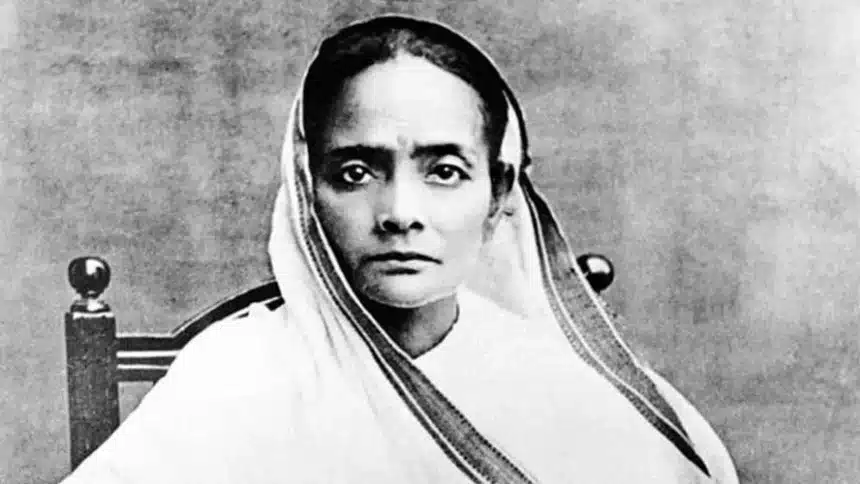Kasturba Gandhi (11 April 1869 – 22 February 1944) was an Indian political activist. Who was an Indian civil rights leader and an activist for independence.
Early Life
Kasturba Gandhi was born on 11 April 1869 in Porbandar, Gujarat. When she was 13 years old, she got married to M Gandhi. She moved into the Gandhi home in Rajkot. She was an illiterate when she got married. She learned to read and write from Gandhi.
In 1885, the couple had a baby, but it died a short time later. In 1888, they had their first child – a son, Harilal. M Gandhi went to London to study law shortly after Harilal’s birth, and he returned in 1891, while Kasturba stayed at home with the baby. The family moved to South Africa in 1897, when M Gandhi returned from South Africa after practicing law there. They returned to India in 1901. They moved to South Africa again in 1903.
Political Career
She got into politics and social activism, in South Africa. In 1904, she helped Gandhi and others to found the Phoenix Settlement near Durban. She was arrested for protesting the treatment of Indian immigrants in South Africa in 1913 and sentenced to three months in jail. In July 1914, they left South Africa for the last time and travelled to England before arriving in India in 1915.
During her time in South Africa, she started having serious medical problems, and she was often ill. Despite that, she was still strong-willed, and she joined more and more civil actions and protests that M Gandhi organised. She often took her husband’s place when he was in prison. Sometimes she undertook activities against his wishes, as he was concerned for her health. However, she spent most of her time managing the various ashrams she helped M Gandhi found.
In 1917, while M Gandhi worked on improving conditions for indigo farmers in Champaran, Bihar. Kasturba was thinking about the welfare of women. She took part in the Satyagraha movement in Borsad, Gujarat, in 1922. However, she participated in a number of civil disobedience campaigns in the early 1930s and was arrested and jailed several times.
After Rajkot’s women appealed directly to her, she protested non-violently against the British, in 1939. She was arrested again in 1942 for participating in the Quit India movement and imprisoned in the Aga Khan Palace at Pune.
Death
She suffered a series of heart attacks and bronchitis while in prison, and she died on 22 February 1944 Yerawada Central Jail, Maharashtra, India.
Read More; Sir Shanti Swaroop Bhatnagar, an Indian scientist

